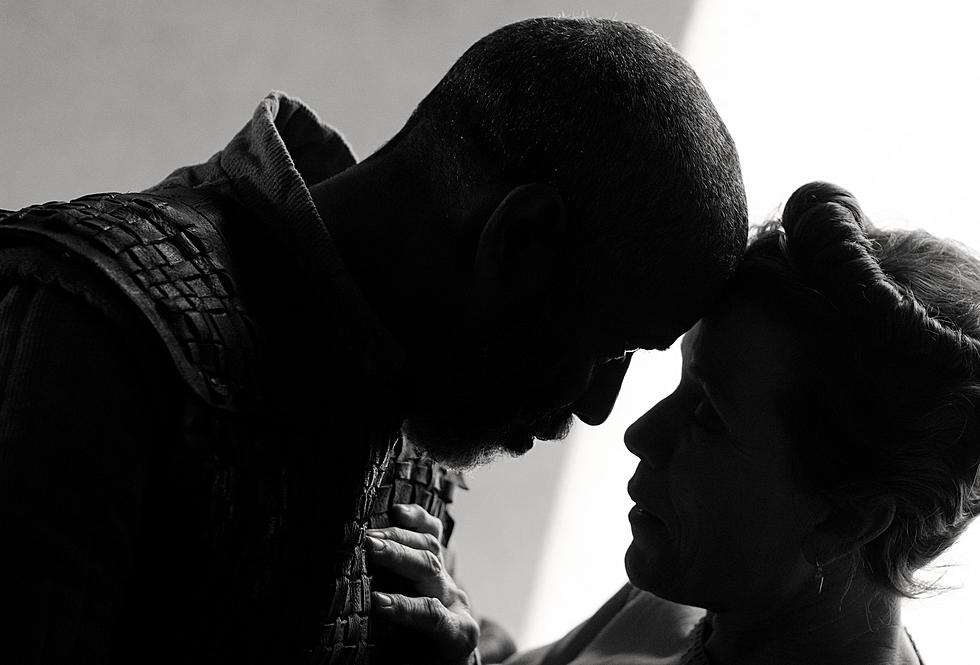
This Year’s NYFF Showcased Three Groundbreaking Films About Queer Identity
The 55th annual New York Film Festival that came to a close yesterday featured a lineup of varying strengths. The festival screened films about the wonderment of childhood (The Florida Project, Wonderstruck), the wounds and regrets of youth (Last Flag Flying, The Meyerowitz Stories (New and Selected)), and the itching in-between of young adulthood (Lady Bird). There were pitch-black satires (The Square, Happy End), historical epics (Mudbound), and documentaries about Steven Spielberg and Joan Didion. But looking back on the fest’s slate of films, the thing that stands out most are a trio of LGBTQ films: Call Me By Your Name, Thelma, and BPM (Beats per Minute). These aren’t just three of the best LGBTQ films of the year, but essential ones that tell startlingly unique portraits of queer identity that we’re going to be talking for years to come.
Call Me By Your Name
Luca Guadagnino’s Call Me By Your Name hasn’t gotten unanimous praise for nothing. This adaptation of André Aciman’s 2007 novel is one of the most sensual movies about first love and queer desire. Set in 1980s Italy, Guadagnino’s film follows Timothée Chalamet’s (Interstellar, Lady Bird) Elio, a 17-year-old American whose leisurely summer is interrupted by the arrival of a young man. Armie Hammer’s Oliver, a breezy philosophy student, isn’t just an intellectual stimulant for the bookish Elio, but a sexual one as well. Oliver is like a Greco-Roman statue come to life, and his mere presence awakens something within the younger boy. Suddenly Elio can’t get the guest out of his head, dizzied by his tanned body, perplexed by his nonchalance, and captivated by his effortless charm.
Call Me By Your Name spends a sun-soaked summer with Elio and Oliver as they play a tug-a-war over their mutual (but unspoken) lust for one another. Again and again, the film recreates what it feels like to be young and consumed by thoughts of someone you wouldn’t dare confess your love to, but who you’d do anything to be near. Guadagnino magnificently captures the vibrant erotic energy between the two men in a way that manages to be sexy without much actual sex (though there is one scene that will surely go down as one of the kinkiest onscreen moments in recent film history).
Call Me By Your Name has an emotional intelligence that’s both universal and specific; it depicts an obsessive, feverish romance that can be relatable to audiences of variously sexualities, but it also understands the particulars of queer desire. It illustrates a unique slice of that experience through Elio, one occupied by a vortex of passion, confusion, and shame, where knowing one’s self comes only through knowing one’s desire. By acknowledging and giving himself permission to explore his love for Oliver, Elio comes to understand himself.
Thelma
It’s a very specific feeling to desire someone you’ve been told you’re not supposed to. It can be an experience filled with uncertainty, as in Call Me By Your Name, or an even more harrowing ordeal laced with torment and denial. The latter is explored through the lens of the supernatural in Joaquin Trier’s Thelma. In it, Eili Harbo plays Thelma, a sheltered Christian girl who leaves home for college only to discover she has Carrie-like abilities. Though it’s been described by some as a horror film, Norway’s gorgeous Best Foreign Language Oscar entry, co-written by Trier and Eskil Vogt, is more of a romantic drama with supernatural elements.
After Thelma meets a young classmate, Kaya Wilkins’ Anja, she begins having violent seizures nearly every time the two are near one another. Despite her physical reaction, they grow closer until one night Anja slips her hand on top of Thelma’s, caresses her leg, and later kisses her. Thelma kisses back, but then pulls away in horror. She avoids Anja as if the kiss never happened, but the more she denies it, the more frequent and stronger Thelma’s telekinetic abilities become. Her supernatural powers become a startling metaphor for repressed sexuality.
Thelma artfully depicts a level of sexual repression and queer anxiety that I’ve rarely seen on screen. There’s a moment in the film where Thelma vomits after fantasizing about Anja, an image that will feel hauntingly familiar to many queer viewers. Thelma needing to literally eject her erotic queer thoughts from her body, followed by her ongoing psychic anguish, evoked a personal memory I’ve never been able to shake. I was 13 and it was first time I admitted to myself I had a crush on a girl. I felt a crushing wave of sadness followed by a spell of nausea. I was literally sick to my stomach and couldn’t sleep that night, kept up by the looming sense that something was very wrong, and that I had no power to stop it. Eventually that feeling dissipated after coming out and as I found peace in my queer identity. Thelma translates that notion of powerlessness, as well as the beautiful relief of self-acceptance, that is inextricably linked to many LGBTQ experiences.
BPM (Beats per Minute)
Robin Campillo’s BPM (Beats per Minute) is a rare gem that goes deeper into the many facets of queerness beyond romance. Set in 1992, a decade after the onset of the AIDS epidemic, BPM chronicles the Paris division of ACT UP, the international AIDS advocacy group. Inspired by Campillo’s experiences with the group, it’s no easily digestible docudrama or by-the-numbers biopic about the AIDS crisis. Instead it’s a more ambitious attempt to use that historical setting to explore queerness as a political act; in the bedroom, in the streets, and ultimately, in everyday life.
While many representations of queer identity in pop culture focus on the romantic aspects of queer identity, few films understand that being queer isn’t just about who you love. Queerness is a daily radical act, one that’s about fighting to survive in a society built on the erasure, rejection, and delegitimization of sexual and gender identities outside of the heterosexual norm. Campillo’s film understands that multifaceted nature of queerness. It tells a story that fuses activism with eroticism, the individual with the community, and the fear of death with the celebration of existence.
BPM bounces between the larger perspectives of the group dynamic to the individual love story of two members, Sean (Nahuel Pérez Biscayart), an animated and outspoken radical who’s HIV-positive, and the quieter Nathan (Arnaud Valois), who’s HIV-negative. The extended sequences inside ACT UP’s protest planning meetings, where members quarrel over strategies, throb with as much fervor as the film’s first sex scene between Sean and Nathan, a beautiful, unvarnished scene that isn’t afraid to address HIV stigma and condom use.
But BPM doesn’t just focus on queer suffering; it also emphasizes the communal spirit of LGBTQ identity. Throughout the film, Campillo cuts away from the violent protests and from Sean and Nathan’s love story to moments of joy and celebration: at nightclubs and at Pride parades where the group capers through the streets with confetti and pom poms. The dance floor, and specifically those of queer bars, are a sacred place for LGBTQ people, a safe space built on liberation, comfort, and the support of community.
What’s most remarkable about BPM is how it presents romance, activism, and celebration as equally essential parts of being queer, both in the 1990s and today. Campillo illustrates that concept in a riveting final sequence that cuts between the ACT UP group storming a gala in protest, to them dancing to EDM, all as the rhythmic sound of a beating heart thumps in the background. The film’s title refers to the human heart rate, but also to the musical beat that hypnotically carries us away from reality on the dance floor, infusing a new meaning into the famous ACT UP slogan “Silence = Death.” BPM may be about a specific historical moment, but it brilliantly explores the power of what it means to be queer and to be alive at any time.
Call Me By Your Name opens November 24, Thelma opens November 10, and BPM (Beats per Minute) opens October 20.
Gallery: The Best Performances By Non-Professional Actors
More From ScreenCrush









